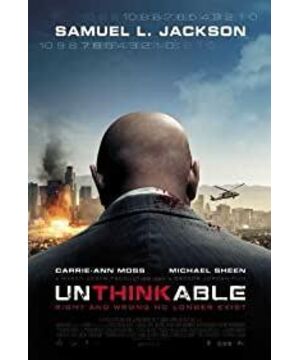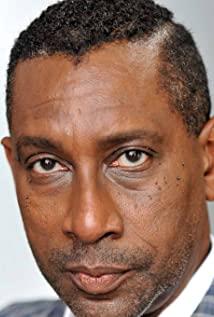. The foundation of the legal spirit is to believe in the finiteness of human rationality. Therefore, procedural justice must be stipulated in order to reach as much consensus as possible and as maximum as possible. justice.
The source of procedural justice is natural justice, that is, two. First, no one can serve as his own judge; second, the judge must listen to the opinions of both parties.
Listening to these two sentences, I really like the meaning of equity, right? Natural justice is very similar to equity itself.
Also out of the spirit of law, procedural justice may be derogated from. This derogation and its definition also originate from the spirit of law.
The legal spirit here also means that because human rationality is limited, the protection capacity of the judiciary is limited, and innocent people cannot be unlawfully violated because of the limited protection capacity of the judiciary (innocent people may have the right to self-defense. And to avoid suffering, even if the law provides ex post protection, you may face possible judicial consequences such as difficult cases and failure of litigation. If the right of self-defense is successfully implemented, there is no need to bear these risks), so the victim should be given the right of self-defense .
For example, when a supermarket has reasonable evidence to suspect someone of theft (such as video surveillance showing theft), it has the right to temporarily restrict the person from leaving the scene and wait for the police to deal with it. According to strict procedural justice, such personal restrictions cannot be carried out without due process.
In other words, procedural justice is the restriction of power controllers because of the limited human rationality, while the derogation of procedural justice is the power granted to natural persons due to the limited human rationality.
The next thing to talk about is the limited legal capacity and scope caused by the limited human rationality.
I once told others that the law is limited and cannot handle matters beyond legal capacity. For example, if someone wants to kill someone, you can say to prosecute him for intentional homicide. If someone wants to detonate the entire solar system, you cannot sue him for deliberately detonating the solar system. For this reason, many people can escape the trial in their lifetime, such as our beloved general, leader, and chairman.
The law recognizes this limitation, and I remember that the initial investigation result of the Gwangju incident was that the successful pacification was not punished. This is a shameful compromise of the powerlessness of the law.
But the power of the law is that the law cannot protect all things in this world from being fair and just, but what the law can do is to let everything be done in a fair and just manner within its own jurisdiction. This is why people are willing to pursue the law.
For the same reason, in the film, the law cannot prevent the younger from releasing the nuclear bomb, but can only punish him after he releases the nuclear bomb.
Note that the law does not do protection work, and nuclear bomb ejection is not the job of judges or lawyers, or even the job of the police.
Of course, it must be admitted that giving the army the power to work in the country for any reason is a shameful violation of the spirit of the law, but it is a reasonable legal obligation of the army to protect citizens from large-scale attacks, and an equally shameful reason is applied: Define the problem.
Under the circumstances in this film, the law is facing an emergency, should due process be derogated? Should the human rights protection of suspects be relaxed? If the answer is "yes", how should this level be delimited? In the absence of precedents, this demarcation work is very painful and requires wisdom and experience, but it is also limited. (Judge Holmes’s delimitation and derogation of freedom is creative work, but its "obvious and immediate danger" is very harmful. The wrong delimitation standard will bring disastrous consequences to the protection of freedom of expression. , Here he violated his own standard of experience, but fortunately, the subsequent cases have basically returned to the old road of post-mortem review.)
In this case, Stupid H Jackson’s position is that the derogation of procedural justice under emergency conditions has not reached the required level. Therefore, he conducted unthinkable torture to extract confessions that violated natural justice and human good customs. During this period, it also faced collapse. (This is a judicial issue. The prison itself is also a kind of torture to the guards. Abnormalities will produce the pleasure of abuse. The kind people may be distorted or face self-blame. In the same way, the torture executors and the executioners are both. In this case, h did not get pleasure from the interrogation process. His cruel behavior was based on the purpose of the contract and the purpose of the behavior, which may be against his own will. This is because he beat the military interrogator and denounced him as bad guys. , This should be an opposition to the act of indulging in the torture and taking pleasure in it, knowing that his torture and torture can’t get the consequences.)
And the representative of Washington and the military unfortunately acted as a brainless man again and was played. The round and round lost self-awareness, conscience and independent judgment.
The role of helem brody represents the principle of finiteness following the current law. Although out of some stimulus, I agree to a certain degree of derogation from procedural justice. But in the end, out of constitutional considerations, I believe that this sentence is very, very, very important.
People can only pursue justice within their own scope, and only God (Allah, Flying Face, whatever else) can make judgments outside the scope of human power. If my abilities (legal abilities) are limited and I have exhausted my manpower (all the means permitted by the law) and still cannot protect people, which leads to serious consequences, I can only bear the consequences. Even using the rest of my life for repentance and atonement cannot comfort my conscience, nor can I do injustice in the name of justice.
Whether derogation and the degree of derogation need to be judged by conscience. In this case, the rest of these fucks has been seduced by h to stand on his side. In this case, h makes a decision by himself or by them, which violates the first rule of natural justice. No one can be himself. The judge.
The spirit of law hopes that everyone can understand and abide by the law. Therefore, h says "'cause you're the only person here with any decency." "'Cause if you can do it, then anybody can." The reason for the matter is that the seriousness of the matter requires extreme derogation of procedural justice (torture of innocent people means that procedural justice ceases to exist, and is reduced to zero). Then the subsequent torture is reasonable.
At this time, helen brody, who was also born in Harvard, made a decision that did not humiliate the court and made Ma Yingzhen ashamed.
This decision assumes that if there is a 1% chance that there is a fourth nuclear bomb, and if there is a 99% chance that there is no possibility, it cannot be measured. 99% of the two children were innocently abused, and 1% of millions of people were killed. , The priority of the two. Therefore, procedural justice cannot be derogated from. If there is a fourth nuclear bomb, let it go.
Seriously speaking, as an individual, even if I am one of the people who may be killed, I will vote for brody. I am not a soldier, and I cannot afford "reasonable sacrifice" or "necessary evil." Even if it is difficult for me to survive in it, I cannot exchange the suffering of others for my survival.
I am not a god, and I cannot judge whether it is proper to stick to the procedural justice in exchange for the lives of millions of people. I can only choose to abide by the procedural justice at my own risk.
In addition, from the legislative point of view, whether the necessary derogation of procedural justice can be carried out in an emergency is a proposition that can be discussed. But what needs to be remembered is that emergency laws are often abused and even lasted for as long as 30 years. The specter of nationalism has always lingered on the heads of consequentialists. Derogation of procedural justice inevitably means the proliferation of socialist cancer.
At this time, you find that terrorism is even a state terrorism problem. It is too right to let the military handle it...War is not a judicial procedure, and war is consequential, and it is "extremely omnipotent".
Fortunately, on the issue of international anti-terrorism and anti-dictatorship, there is no need to consider the due process of American domestic law and Melinda’s warnings. It would be fine if the tomahawk directly knocked down Milosevic and Saddam. Colonel Gaddafi, I wish you He died in The Hague, as well as the old man Fidel and General Jin Yuri. As for the bacon, it
would be good to air-dry. This film is good. In addition to the psychological abuse of the audience, he beautified the FBI (this guy did not rarely violate human rights. ), praised private ownership (no private contractor h, the remaining bombs have to be bombed), adhere to the spirit of the law (God’s perspective and the value of life are all rolled), the death of millions of people has indeed brought about the anti-terrorism War support. These painful results are also results.
Let God belong to God, let Caesar belong to Caesar, as for the devil's affairs, let the devil handle it.
View more about Unthinkable reviews











